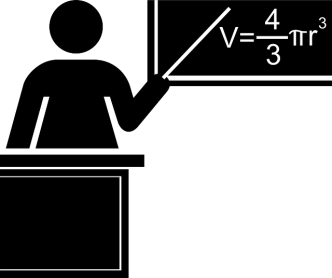 Change is a constant in our world, and that includes the world of educators. Justin Tarte recently published this post on changes teachers are challenged to make. He makes the case that teachers shouldn’t resist change just because it makes them uncomfortable. He states that doing what’s best for the students often stretches teachers into uncomfortable zones. His epiphany was
Change is a constant in our world, and that includes the world of educators. Justin Tarte recently published this post on changes teachers are challenged to make. He makes the case that teachers shouldn’t resist change just because it makes them uncomfortable. He states that doing what’s best for the students often stretches teachers into uncomfortable zones. His epiphany was
“the level of comfort educators experience is directly linked to the learning experiences and learning opportunities that become available for students.”
I think teachers need to carefully analyze why they are uncomfortable with the changes they feel themselves resisting. Not everything new is better than what has been done before. Teachers were uncomfortable with the New Math that was forced on them in the 1960’s. It eventually was discarded. It wasn’t good for the students or teachers. Sometimes the motivation isn’t the good of the students, but whether a school or district gets grant money for making the change. This makes guinea pigs of the children.
Sometimes curriculum changes are designed to follow a political agenda that is twisting history or data in a way that may upset a teacher who can discern what’s happening and doesn’t want to be part of it. On the other hand, changes in methods and tools are often content neutral and the results depend on how they are utilized.
Computers, for example, are just tools. Their value depends upon how they are used. Some older teachers may resist using them because of the uncomfortable learning curve for themselves. If that is the point Tarte is making, then I agree. Good teachers must first be students who continue to keep learning and stretching themselves as new discoveries are made. But teachers should still think critically about proposed changes. Not every new theory deserves to be tried in the classroom.
One thing thing that is often not considered when change is proposed is how it will affect the relationship between students and teachers and whether or not a certain teacher has always been an effective teacher. I well remember a master teacher I had when I was student teaching 48 years ago. His gift was humor, and he really knew how and when to use it. It was an effective tool and an important component in the dynamics of his classroom because it made the students listen to everything else he said. The relationship it helped him maintain with his students enhanced their ability to learn.
I’m quite sure this man would have been eager to implement changes in methods if he thought they would make learning easier for his students. He was not one to resist change. But neither would he have adopted any method in which he could not see real value just because it was new or part of the latest trend. It was important for him maintain his teaching style and only use those tools that would enhance it rather than diminish it.
I’m afraid that many of the changes teachers are being forced to implement today make them less effective because these changes suddenly take them out of an element they have mastered and throw them suddenly into one they have not. It takes time for a teaching style to evolve. Once it does, that teacher shouldn’t be forced to make sudden changes in teaching methods that impact his teaching style and possibly even his relationship to his students. That’s like throwing a fish on land and telling it to keep swimming.
Teachers should see demonstrations of new methods (social media, software) and equipment the school has available (computers, interactive whiteboards, etc) and have a chance to play with them over a period of time before being asked to add them to their toolbox. Maybe that would encourage more teachers to embrace proposed changes.
I admit it’s been a long time since I’ve been in a classroom as student or teacher. I’m wondering if the professors in schools of education still use the lecture method almost exclusively, or if they demonstrate the new methods they want teachers to use as they teach them about those methods. Do college professors use interactive whiteboards to teach teachers about how to use them? Do they give the kind of assessments they teach their students are most effective? I remember my Tests and Measurements professor told us that true/false tests were the least effective tests. Yet all the tests he gave us were true-false test.
My own experience has been that those who teach teachers are resistant to changes in their own teaching methods. If they do not stretch themselves out of their comfort zones, why should they expect the teachers to do so? If the methods they want teachers to use are more effective, maybe they should demonstrate them. That would help teachers (and future teachers) see first hand how effective they really are while helping them understand how to use them.
